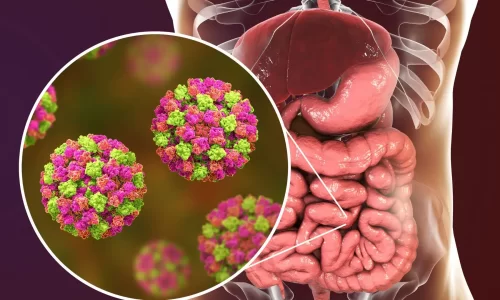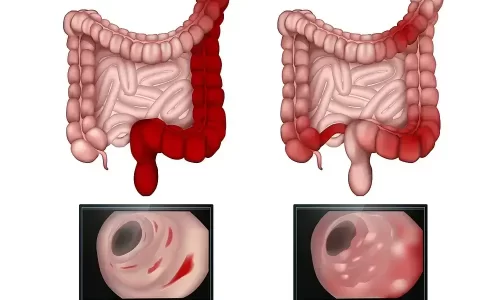Gastrointestinal Conditions

Gastrointestinal Conditions – Naturopathic Diagnosis and Treatment
At the Naturopath Osteopath Clinic, we provide holistic, patient-centered care for a wide range of gastrointestinal conditions. Digestive health plays a foundational role in overall wellness, and our licensed naturopathic doctors are committed to identifying root causes rather than just treating symptoms.
Common Digestive and Gastrointestinal Conditions We Treat:
- Irritable Bowel Syndrome (IBS)
- Gastroesophageal Reflux Disease (GERD)
- Constipation and Diarrhea
- Inflammatory Bowel Disease (IBD), including Crohn’s disease and ulcerative colitis
- Food sensitivities and intolerances
- Gastritis and gastroenteritis
- Small Intestinal Bacterial Overgrowth (SIBO)
- Leaky Gut Syndrome (Intestinal Permeability)
- Indigestion, bloating, and gas
Signs and Symptoms of GI Imbalance:
- Abdominal pain or cramping
- Changes in bowel habits
- Excessive gas or bloating
- Heartburn or acid reflux
- Nausea or loss of appetite
- Undigested food in stool
- Fatigue linked to poor nutrient absorption
Our Naturopathic Approach to GI Health:
- Comprehensive intake and history to identify contributing factors like stress, diet, medications, or infections
- Laboratory testing for food sensitivities (IgG), stool analysis, SIBO breath tests, and digestive function panels
- Customized dietary interventions (e.g., elimination diet, low FODMAP, anti-inflammatory nutrition plans)
- Herbal and supplement therapy to support gut healing, reduce inflammation, and promote microbiome balance
- Lifestyle guidance for improved stress management, sleep, and hydration
Why Choose Naturopathic GI Care?
Unlike conventional medicine which may focus on suppressing symptoms with medications, our naturopathic doctors work to uncover the root imbalances that contribute to your digestive issues. We combine evidence-based natural therapies with clinical nutrition, functional medicine tools, and compassionate care.
If you’re struggling with chronic digestive problems, let us help you find lasting relief. Contact the Naturopath Osteopath Clinic to book your consultation and begin your journey to better gut health today.

Food Intolerance
Food intolerance is a condition in which the body has a negative reaction to a particular food. Gastrointestinal disorders are conditions that involve the gastrointestinal (GI) tract, which is the area of the body that handles food. These disorders can cause problems with digestion, absorption, and motility. The GI tract is the final part of the digestive system and includes the stomach, small intestine, and large intestine. There are many different types of GI disorders, but they all involve problems with the way the food is processed or absorbed by the body.

Gastritis
Gastritis is a condition that affects the stomach and intestines. It can be caused by a number of things, including eating foods that are bad for your digestion, over-the-counter medications, and infection. The most common symptoms are pain and vomiting, but gastritis can also lead to diarrhea, constipation, and weight loss. Gastritis is treated with antibiotics and painkillers. If it’s severe, surgery may be necessary.

Gastroenteritis
Gastroenteritis is an infection of the stomach and intestines. Symptoms of gastroenteritis can include nausea, vomiting, diarrhea, and abdominal pain. Gastroenteritis can be caused by a virus, bacteria, or parasite. Naturopaths at Natural Health Clinic of Halton use a variety of methods such as nutrition therapy, herbal medicine, homeopathy, lifestyle modifications, mind-body techniques and more to treat the underlying cause of Gastroenteritis. By using these natural forms of treatment, the patient can experience relief from symptoms without relying solely on medications that may have long-term side effects.

Gastroesophageal Reflux Disease (GERD), H.Pylori, Heartburn
Gastroesophageal reflux disease (GERD) is a condition in which acid from the stomach flows up into the esophagus, often causing heartburn. The GERD symptoms can include heartburn, coughing, shortness of breath, and weight gain. H. pylori is the bacteria that is most often associated with GERD, and it has been linked to heart disease, stroke, and other problems. Treatment for GERD includes medication and lifestyle changes. The most common cause of GERD is gastroesophageal reflux disease (GERD), which is a result of the improper relaxation of the lower esophageal sphincter (LES). This weakness allows food and vomit to escape from the stomach and into the esophagus. The most common source of the acid is food, but it can also be caused by smoking, alcohol, and stress. H. pylori infection is another major cause of GERD, as this bacterium increases the production of stomach acids.

General abdominal pain, bloating, flatulence
Abdominal pain, bloating, and flatulence are common symptoms that can accompany a variety of conditions. It’s important to get a diagnosis and treatment for any abdominal pain, as it can signal the presence of a serious health problem. Here are some things to watch for when evaluating abdominal pain: Is the pain localized to the lower abdomen or upper abdomen? Does the pain increase with Activity? Is there vomiting or diarrhea? Is there blood in the stool? Does the pain occur after eating or after a meal? Is it constant or intermittent? Is there fever? Where does the pain occur?

Hemorrhoids
Hemorrhoids are swollen veins in the anal canal. The pain they cause is partly caused by pressure on the veins and partly by the bleeding that results. About one in five people experience hemorrhoids at some time in their lives. They are most common in people over the age of 50, but they can occur at any age. Treatment depends on the severity of the hemorrhoids and may include relieving the pain and using medications to prevent or reduce bleeding. There are many different ways to treat hemorrhoids, including medication, and natural remedies.

Hepatitis
There are many types of hepatitis, but all of them result in a liver disease. Hepatitis A is the most common kind and can be spread through contact with contaminated food or water. Hepatitis B is spread through contact with blood, semen, or vaginal fluid. Hepatitis C is spread through contact with blood, semen, or vaginal fluid. Hepatitis D is a new type of hepatitis that is spread through direct contact with the saliva or blood of an infected person. Hepatitis is a serious liver disease caused by the hepatitis A, B, and C viruses. Symptoms of hepatitis A include fever, fatigue, nausea, and vomiting. As the disease progresses, symptoms can include jaundice (yellowing of the skin and eyes), dark urine, and clay-colored stools. Hepatitis B can cause a chronic liver infection that can lead to cirrhosis or liver cancer.

Irritable Bowel Syndrome (IBS), Constipation, Diarrhea
Irritable Bowel Syndrome (IBS) is a disorder characterized by abdominal pain or discomfort, alternating diarrhea and constipation, and a feeling of overall bloating. It affects up to 15% of the population, making it one of the most common gastrointestinal disorders. IBS is thought to be caused by a combination of environmental and genetic factors. People with IBS often experience constipation and diarrhea. Some people also experience a feeling of abdominal fullness or pain. The IBS is caused by a combination of genetic and environmental factors. The IBS may also be caused by an imbalance of gut bacteria. Diarrhea is the most common symptom of IBS. The diarrhea can range from infrequent loose stools to frequent watery, sometimes bloody stools. Some people may experience a lack of regularity in the frequency or amount of their bowel movements.

Infant Colic
Infant colic is a common complaint that parents experience when their infants are around six months old. Colic is usually defined as bouts of inconsolability lasting for more than 30 minutes, but can vary in severity. Infants who experience colic may be restless, have a hard time sleeping, and make loud noises. Infant colic can be caused by a number of things, including food allergies, reflux, GERD (gastroesophageal reflux disease), and viral infections. Treatment typically involves a combination of lifestyle changes and medications.

Inflammatory Bowel Disease (IBD) – Crohn’s disease and Ulcerative colitis
Inflammatory bowel disease (IBD) is a group of conditions that cause inflammation and irritation in the intestine. Crohn’s disease and ulcerative colitis are the most common forms of IBD. Symptoms can vary from person to person, but generally include diarrhea, abdominal pain, and weight loss. IBD is considered a chronic condition, meaning that it can last for years. Crohn’s Disease is a chronic condition that affects the digestive system and can cause inflammation, bleeding, and severe cramping. This can lead to severe pain and fatigue. Crohn’s disease can be treated by diet changes and medications.

Nausea/Vomiting
Nausea, vomiting and diarrhea are all common symptoms of gastroenteritis. Gastroenteritis is an infection of the stomach and intestines caused by a variety of bacteria, viruses or parasites. Nausea is one of the most common symptoms, and it usually starts about 2 hours after you eat or drink something. Vomiting can happen at any time during the infection, but it often starts 12 to 24 hours after you get sick.

Peptic Ulcers
Peptic ulcers are a type of stomach pain caused by the erosion of the inner lining of the stomach. The pain can be severe and last for hours, days, or weeks. Ulcers can occur anywhere along the inside of the stomach and may extend down into the small intestine. Ulcers are most common in people over age 50 but can also occur in younger adults. Peptic ulcers are a type of stomach inflammation. They can be caused by a variety of things, including drinking alcohol, smoking, and eating certain foods. Peptic ulcers can lead to infection and can also cause pain when they are eaten. If left untreated, peptic ulcers can lead to serious complications.
Naturopath Osteopath Clinic Services

Women’s Health and Wellness
Naturopathic doctors often specialize in women’s health and wellness, providing personalized, integrative care that supports women through every stage of life. From adolescence and fertility to pregnancy, menopause, and healthy aging, naturopathic care focuses on prevention, hormonal balance, and whole-body wellness—empowering women to take an active role in their long-term health.

Men’s Health and Wellness
Men’s health and wellness are essential not only for individual vitality but also for the strength of families and the resilience of entire communities. Prioritizing men’s physical, mental, and emotional well-being leads to healthier relationships, improved quality of life, and increased productivity—ultimately contributing to a more balanced and thriving society. Comprehensive care for men supports long-term health, disease prevention, and overall fulfillment at every stage of life.

Mental Health
A holistic approach can be especially beneficial for individuals facing mental health challenges, as it aims to identify and address the underlying causes of symptoms—not just manage them. By considering the physical, emotional, and lifestyle factors that contribute to well-being, holistic care supports more comprehensive and lasting mental health outcomes.

Integumentary System, Skin Conditions
Naturopathic doctors often specialize in the integumentary system, which includes the skin, hair, and nails. Through a holistic and individualized approach, they can effectively address a range of skin conditions such as acne, eczema, psoriasis, and other inflammatory or chronic dermatological concerns. By identifying the root causes—whether hormonal, digestive, or immune-related—naturopathic care supports long-term skin health from the inside out.

Endocrine Conditions
Naturopathic doctors commonly support patients with endocrine-related conditions such as diabetes, thyroid dysfunction, and adrenal fatigue. By addressing hormonal imbalances through lifestyle changes, nutritional support, and targeted natural therapies, naturopathic care aims to restore optimal endocrine function and improve overall well-being.

Cardiovascular Conditions
Naturopathic doctors provide holistic, patient-centered care and can support individuals with a wide range of cardiovascular conditions. By focusing on lifestyle, nutrition, stress management, and natural therapies, they work to address underlying risk factors and promote long-term heart health.

Autoimmune disorders, Immune System Condition
An immune system condition refers to any disorder that affects the body’s ability to defend itself against illness and disease. This includes a wide range of issues such as chronic infections, autoimmune diseases, and allergic reactions—each involving an imbalance or dysfunction in immune system response.

Rheumatologic and Musculoskeletal Conditions
Rheumatologic and musculoskeletal conditions refer to disorders that affect the joints, muscles, bones, and connective tissues, often resulting in pain, inflammation, stiffness, and restricted mobility. These conditions can significantly impact daily function and quality of life if not properly managed.

Respiratory System Conditions
A Naturopathic Doctor (ND) takes a holistic approach to care, focusing on treating the whole person rather than just the symptoms of an illness. Rooted in the belief that the body has an innate ability to heal itself, naturopathic medicine emphasizes identifying and addressing the underlying causes of disease while supporting the body’s natural healing processes.

Gastrointestinal Conditions
A naturopathic doctor specializing in gastrointestinal conditions typically utilizes a range of natural therapies to support and restore digestive health. This may include nutritional counseling, herbal medicine, probiotics, lifestyle modifications, and stress management techniques—each tailored to address the root causes of digestive imbalance and promote optimal gut function.

Neurology and Pain Management
Naturopathic doctors are trained in a wide range of natural therapies that can support the treatment of neurological conditions. These therapies may include botanical medicine, homeopathy, acupuncture, nutritional support, and lifestyle interventions—each aimed at improving nervous system function, reducing inflammation, and enhancing overall neurological well-being.
If you liked this content and found it to be informative, please rate it.
We are sorry that this post was not useful for you!
Let us improve this post!
Tell us how we can improve this post?
